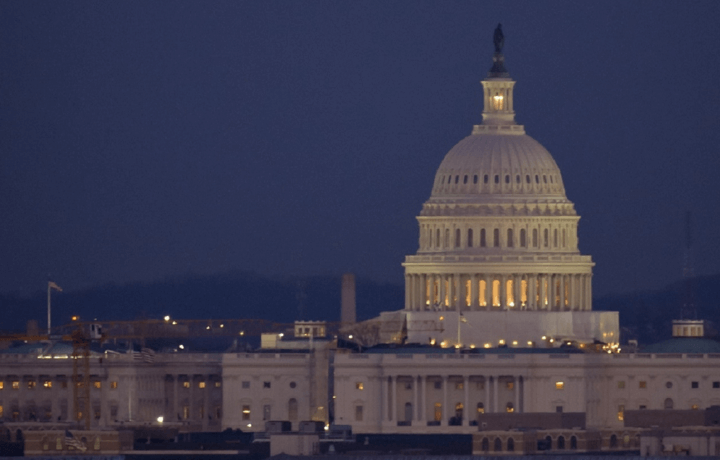As of Saturday the ongoing government shutdown is now the longest in U.S. history, and it isn’t just federal workers who are feeling its effects. Government contractors are affected as well, and in many cases even when the shutdown is resolved it won’t be an immediate back to business.
Just as many federal workers have been furloughed, the same is happening to contractors. The New York Times recently reported how contractor Christopher Fuller and his research team at the Environmental Protection Agency received a “stop work order” on New Year’s Eve. He and his team were told they had just four hours to shut down the lab.
Fuller is an example of one of the many of the contractors who, unlike federal employees, may not be reimbursed for unpaid wages once the government reopens.
Other contractors are continuing to work; and will likely do so – at least so far as the contract has funding, but the shutdown can still impact existing and future contracts.
Legislative attorney David H. Carpenter offered a legal sidebar explaining how a shutdown affects government contracts and noted, “…during a lapse in funding, the Antideficiency Act significantly limits an affected agency’s ability to solicit and award new contracts, to obligate new funds to existing contracts, and to perform essential contract administration functions.”
More worrisome for many contractors is that the fact that a government shutdown could even – at least in the most extreme case – result in the termination of a contract as part of the Antideficiency Act. This can occur under certain circumstances, such as if additional funds are not obligated after a funding limit is reached under a cost-reimbursement contract. In other cases the government’s authority to exercise options to purchase additional goods or services could be subject to a time limit, and the expiration could occur prior to annual appropriations being provided.
Carpenter added that even contracts that are fully funded could feel the effects of the shutdown. Contractors could be forced to wait for payment because the agency personnel with the authorization to approve payments may be furloughed, while those contracts that require performance on government property may not be possible if the facility is closed or otherwise inaccessible.
In some cases it may not even make fiscal sense for a contractor to perform the contract as it was originally contemplated while the shutdown continues. Carpenter noted Department of Homeland Security guidance on funding lapses: “It may be wasteful to have a contractor perform regular trash collection every day in the offices of a federal building that has closed due to the funding lapse.”
In these cases government contracts and federal acquisition law does provide mechanisms by which agencies can adapt to these unexpected circumstances, and operate in a way that minimizes the cost to the government. However, the legal mechanisms available to agencies and the costs associated will no doubt vary from contract-to-contract.
Stop-Work Orders and the Government Shutdown
In some instances an agency might formally order a contractor in advance of an imminent funding lapse to suspend or delay performance of an existing contract with the stop-work order clause. Those are included in certain non-construction contracts and are there to permit agency personnel to order a contractor to “stop all, or any part of the work called for by this contract for a period of 90 days after the order is delivered to the Contractor, and for any further period to which the parties may agree.”
When a stop-work order clause is triggered, contractors do have the right to what is described as an “equitable adjustment” of the contract to receive “reasonable costs” associated with halting and restarting that contract. Those costs are generally reached through negotiations between the agency’s procurement personnel and the contractors based on relevant facts and circumstances – and this can include of course a government shutdown. Contractors issued a stop-work order are generally required to “take all reasonable steps to minimize the incurrence of costs” to the government.
There are times when the situation – even a shutdown – doesn’t require a stop-work order, but could result in a change order within the scope of the contract to address changes that need to occur as a result of a funding lapse. When changes are made the parties can negotiate a cost adjustment to address the changes that were required.
As Carpenter noted in his legal sidebar, “The impact that a government shutdown might have on contractors and their employees can vary considerably depending on, among other factors, the length of the funding lapse, contract terms, and agency contract administration decisions. Some contractors and their employees could be largely unaffected by a funding lapse. In other cases, contracts might be modified or even terminated, which could reduce the payment that the contractor would otherwise have received under the contract and could result in the contractor’s employees being furloughed without pay or laid off.”
Government Contractors Don’t Get a Pass
In past shutdowns, contractors have generally sat on the sidelines, but this time is different – simply because this is now the longest shutdown in U.S. history. As the government shutdown enters its third week it could be putting major contracts at stake. Last week the Aerospace Industries Association issued a statement noting the effect it had on the industry and its government partners. The AIA noted that major research projects at NASA, the Federal Aviation Administration, the National Oceanic and Atmospheric Administration and other agencies are all now in limbo.
“Every day the shutdown lasts, the impacts grow and become more difficult and more expensive to fix,” said AIA president and CEO Eric Fanning in a statement. “It’s time to get these dedicated public servants back to work.”



